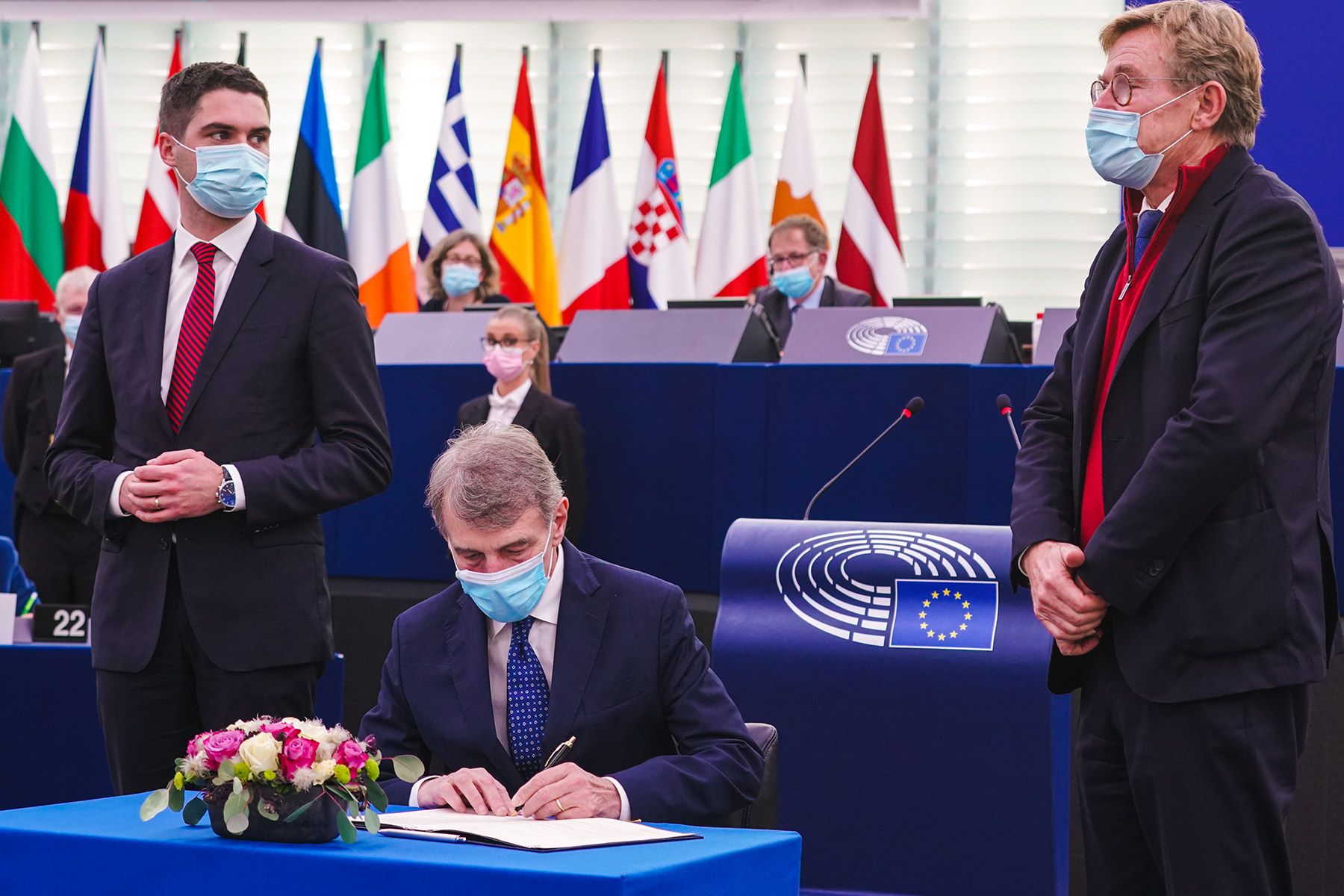For next year’s EU budget, MEPs have secured better support for health, research, climate action, SMEs and the young.
Parliament has obtained in total €479.1 million for its priorities, on top of what the Commission proposed in the draft budget updated by the amending letter. MEPs were successful in increasing funding for programmes and policies that contribute to the post-pandemic recovery, in line with Parliament’s priorities set out in its guidelines for 2022.
Paving the way for a more resilient European Union
Particularly noteworthy are the increases for:
- the Neighbourhood, Development and International Cooperation Instrument (NDICI – Global Europe) (+€190 million with a particular focus on fighting the pandemics, including through vaccinations);
- the Horizon Europeresearch programme (+€100 million);
- the environment and climate action LIFE programme (+€47.5 million);
- Erasmus+ (+€35 million);
- EU4Health (+€51 million);
- the Single Market Programme (+€30 million);
- Creative Europe (€5.5 million);
- and the Citizens’ Rights and Values programme (+€5.5 million).
Overall, it amounts to €169.5 billion in commitment appropriations and €170.6 billion in payment appropriations. Details on the budget agreement of 15 November can be found in the press release following the deal with Council, and in the joint conclusions. A table with the figures can be downloaded here. A background briefing on the adoption of the European Union’s 2022 Budget can be found under this link.
Speeding up global vaccinations, supporting Syrian refugees
The draft amending budgets 5/2021 and 6/2021 were part of the overall deal. They focus on giving help to Syrian refugees in Turkey and the region, and financing 200 million vaccination doses through the COVAX mechanism. They were adopted by 588 votes to 87 and 14 abstentions (DAB 5/2021) and 623 votes to 27 and 38 abstentions (DAB 6/2021). More information in the recent press release and the background briefing.
Council formally approved the agreement on the 2022 EU budget reached with Parliament on 23 November. Parliament approved the budget on Wednesday by 550 votes to 77, with 62 abstentions. It was then signed into law by the President of the European Parliament, David Sassoli.
Quotes
Johan Van Overtveldt (ECR, BE), Chair of the Committee on Budgets: “The budget agreement reached for 2022 cannot be seen in isolation, but together with the reinforcement offered by NextGenerationEU. In addition to the 169.5 billion euro in commitments from the regular budget, there are another 143 billion euro in grants from the recovery plan. Member states are also able to take out loans. So next year’s budget is all about striving for a strong economic recovery.”. (Read the full speech in Dutch here, see the video here).
Karlo Ressler (EPP, HR), general rapporteur for the EU budget 2022 (for section III – Commission): “Over the course of this year we have echoed a number of political commitments to direct the budget towards a real, tangible instrument tailored to support businesses, regions and generations of citizens. The objective was clear: deliver a strong recovery budget in a year when, for the first time, the annual budget is significantly complemented by the Recovery Investment Plan.” (Read the full speech here, see the video here).
https://twitter.com/KarloRessler/status/1463570374126452738?s=20
Damian Boeselager (Greens/EFA, DE), rapporteur for the other sections: “From Parliament’s side, the final outcome (…) is a success. We have barely ever seen a budget so focused on our priorities, be it in the fight against climate change, in the solidarity shown via vaccination campaigns and in supporting our research excellence, just to name a few examples.” Read the full speech here, see the video here).
Background
Given the need to manage work and action taken over several years, the EU budget distinguishes between commitment appropriations (the cost of all legal obligations contracted during the current financial year, possibly bearing consequences in the following years) and payment appropriations (money actually paid out during the current year, possibly to implement commitments entered into in previous years).
Around 93% of the EU’s budget goes to citizens, regions, cities, farmers and businesses.







Leave a Reply